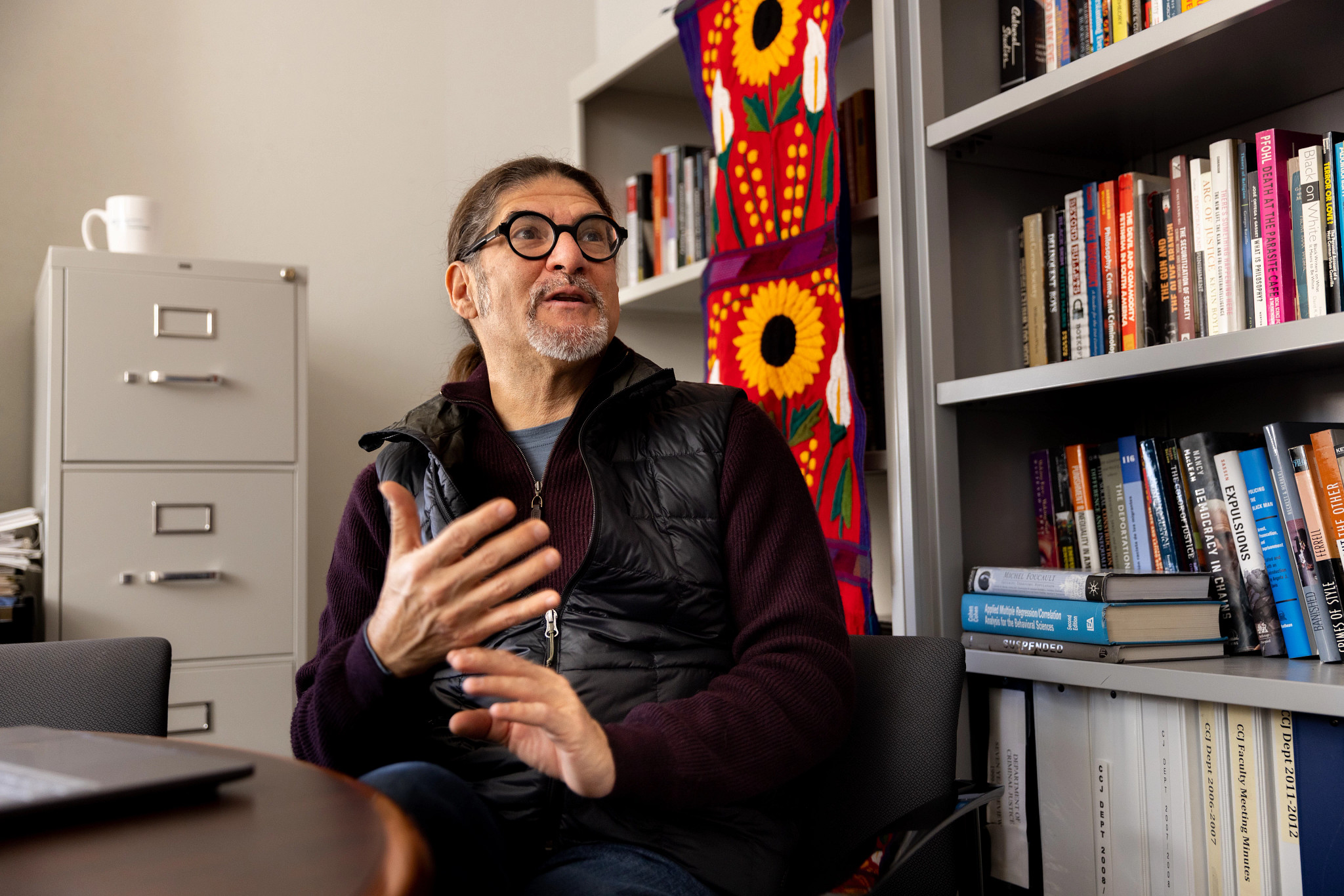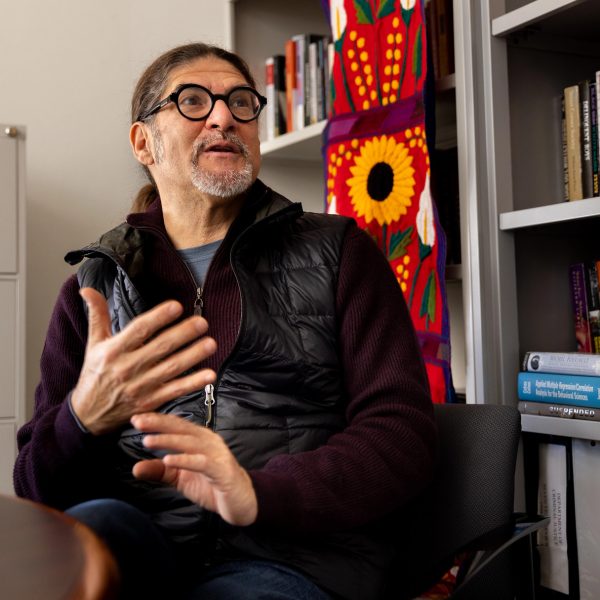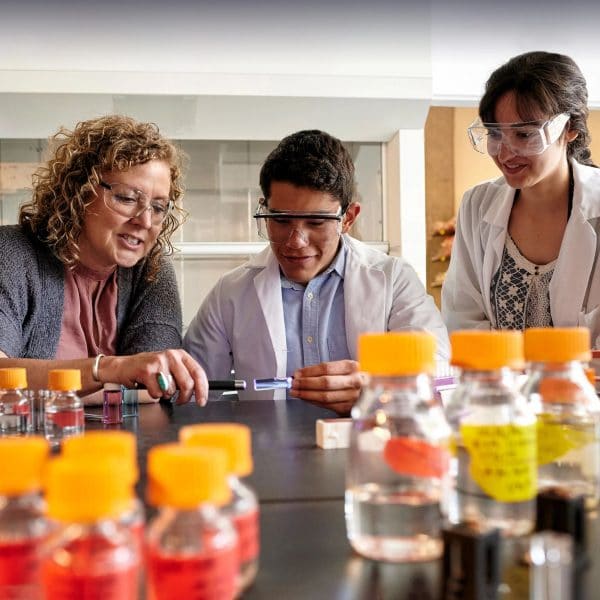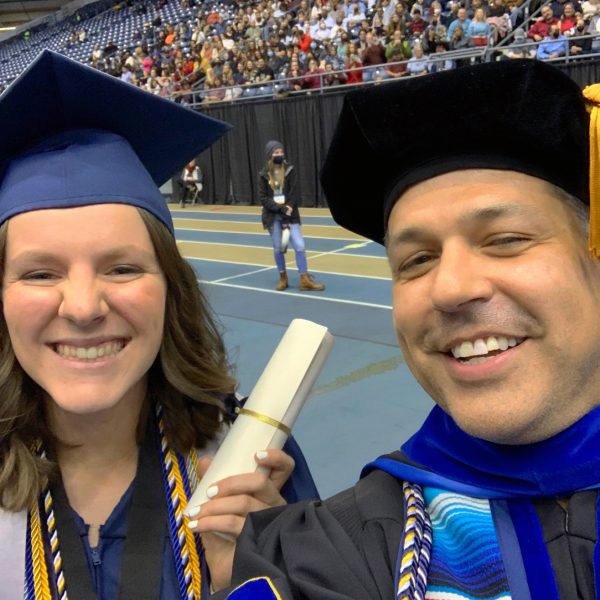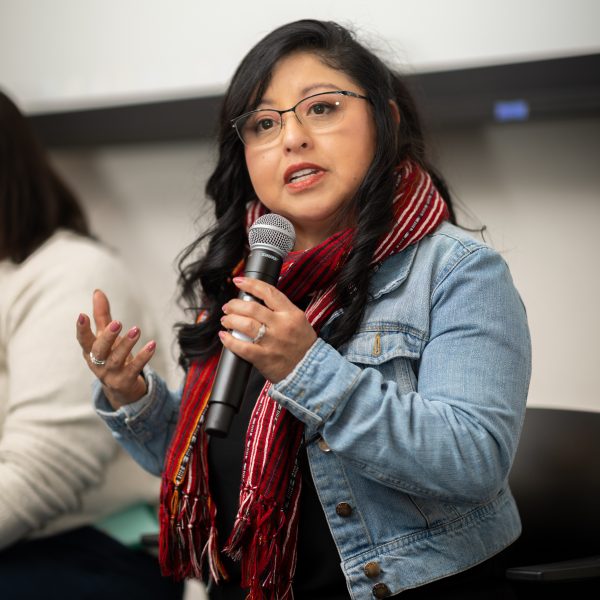Through his role as the Hispanic-Serving Institution (HSI) Advisor to the Provost and in his research examining the evolving needs of policing in communities across America, Dr. Luis A. Fernandez works to establish spaces of safety, inclusivity, and opportunity.
Rethinking safety in American cities
Fernandez, who is also a Professor in and Chair of the Department of Criminology and Criminal Justice, is exploring critical shifts in how Americans view safety, community services, and policing. “Currently, I’m doing research on the effects that the Black Lives Matter (BLM) movement had on police, the transformation of police departments, and the changes that are taking place nationally and locally,” Fernandez says.
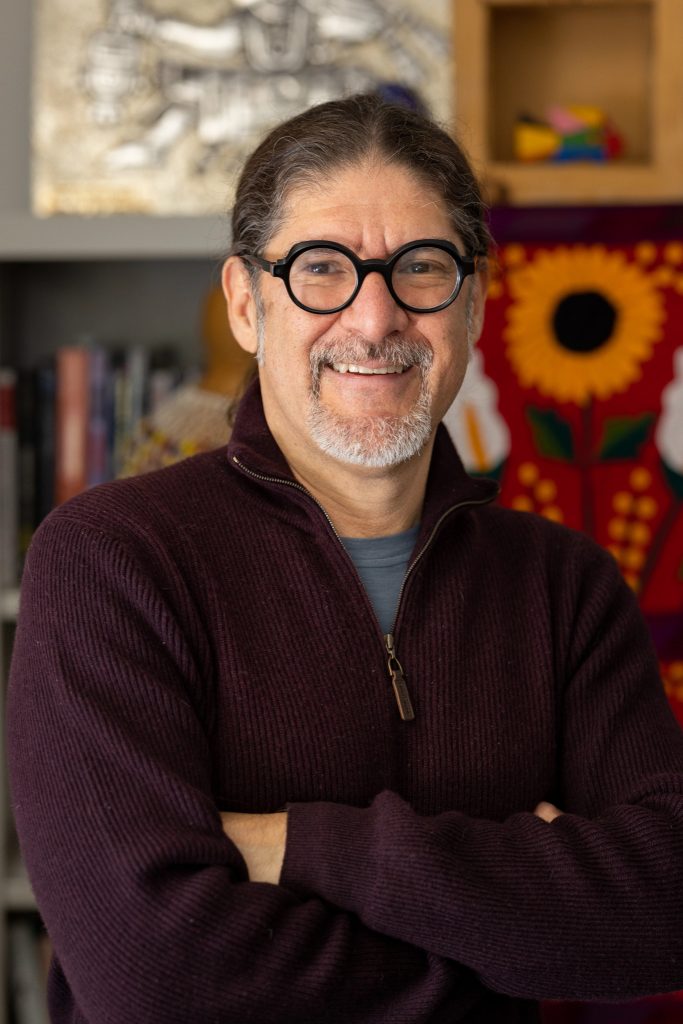
Policing in the US has undergone significant changes in the last several decades, which community leaders, activists, researchers, and others are now examining as they consider possible futures for local and country-wide police forces. Officers often confront a complex reality in the field, as they fill a gap left in the social fabric of America due to the reduction of social services for unhoused, mentally ill, or otherwise neglected members of society. According to Fernandez, “In the last 30 to 40 years, we saw the dismantling of services for mentally ill, unsheltered people, and individuals with addiction issues. The police had to step in and engage these populations, and they are not necessarily the best at responding to certain kinds of situations. So, there are movements to reroute these vulnerable populations, so that they don’t engage with police and instead engage with services in an attempt to prevent their entry into the criminal justice system.”
While many have studied the diversion of these populations from the criminal justice system, reviewing the impact on policing represents a new frontier in the field. The idea that police forces shouldn’t fill every community need offers an insight into a more balanced potential future. “Part of my new research has been reimagining how we think of safety—in schools, in cities, or through policing—because we tend to think of safety as a concept that has to do with being threatened and being harmed by activities that then need to be criminalized.”
Fernandez wants to change that practice. “What if there are situations that are harmful, but may not need criminalization?” he asks. “Or the opposite, criminalize situations that are not harmful. How can we successfully transform the notion of security and safety that first seeks to reduce harm, but interpersonally and systemically?”
This idea of a police force defined by a balance between an ethos of community and that of the more traditional role of law enforcement offers a positive path towards reforming a widespread institution for the benefit of its members as well as society. It also speaks to Dr. Fernandez’s approach to another key part of his work at NAU: his participation in the HSI working group.
Hispanic-Serving Institution: what it means to NAU
In 2021, Hispanic student enrollment at NAU exceeded 25 percent, and the university received a federal HSI designation. Through access to HSI-specific grants and other resources, NAU has worked to increase its support systems for Latine and Hispanic students.
This initiative resonates with Fernandez on a personal level. “The reason that HSI is important is that, as an institution, we can say, ‘I want to serve the role that the institution served for me, and I want to open up those doors wide for thousands of people, thousands of students,’” he says. “I want today’s students to have the opportunities that I had, and I want them to come to NAU, feel welcomed, feel understood, be received by an institution that understands their needs, make sure that we have services to support them, and try to move them through the university with a low level of debt.”
As Arizona’s Hispanic population continues to grow, this designation will help NAU fulfill its mission of driving educational attainment for the needs of our state, and in doing so, ensure a bright future for its students and their families. “I think that NAU stands a good chance of developing into an engine that will support this population,” Fernandez says. “We need space, but the space we claim cannot be a removal of others. It has to be an integration and a movement in a collective lift.”
An important piece of this work comes from driving awareness of NAU’s new HSI status across campus. Through meetings with the provost, faculty, students, and staff, Fernandez—along with College of Education professor Claudia Rodas—is launching dialogue surrounding HSI initiatives as a means of building the safety net required to enable Hispanic (and all) students to succeed. His advocacy for policies to expand educational access and build a vehicle of opportunity offers an insight into what drives him forward: “My internal dialogue is always, ‘Where can I do the most good?’ Because that’s where I’m going to be the happiest.”

